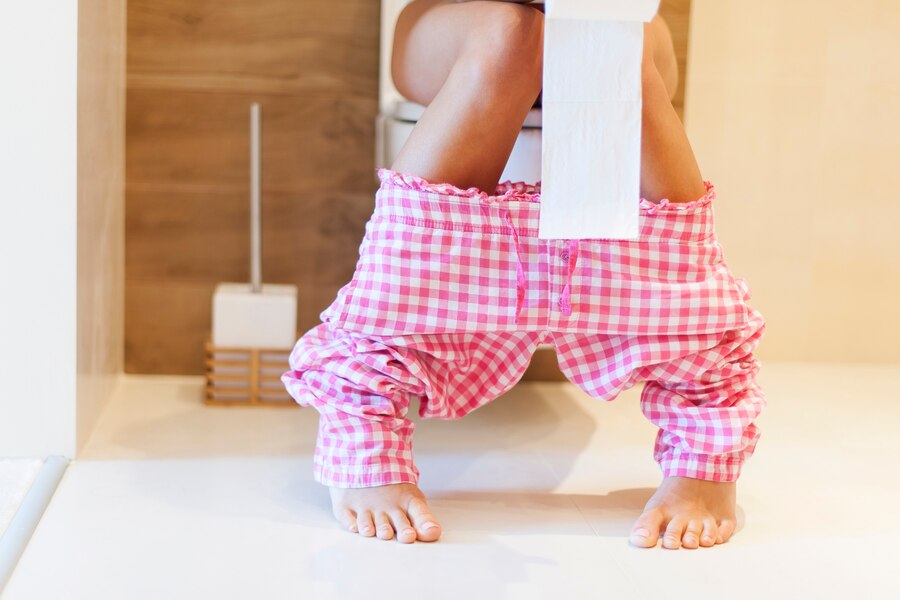The process of pregnancy and childbirth is not easy. Your body starts changing even before you find out you are pregnant. These changes continue through your pregnancy and even after childbirth. Unfortunately, not all these changes are pleasant. One of such unwelcomed changes some women may experience is postpartum gas or flatulence.

What causes the increased flatulence after pregnancy? How can you deal with postpartum gas at home? When should you be worried? Read on to find out.
What Causes Postpartum Gas?
It’s common to experience flatulence after giving birth as many women say they feel gassier than usual after having their baby. Postpartum gas can be caused by a variety of factors during the postpartum period. Some of the most common causes include:
Pelvic Floor Damage
Pregnancy and childbirth puts a lot of strain on your pelvic floor. In some women, the muscles of the pelvic floor may even overstretch and tear. Although the majority of vaginal tears sustained during delivery heal without any problems, some women will experience changes in bowel habits. One of the most common changes is postpartum gas.
Constipation
After delivery, your bowel movements may slow down for the first few days. This could cause you to be constipated, with trapped, painful gas as a side effect.

Additionally, some of your prescribed medications like iron supplements or painkillers could also cause you to be constipated.
Diet and Lifestyle
What you eat also has a major role to play in the amount of gas you produce. Some foods have been shown to significantly increase your gas production. Some include high-fiber foods, dairy products, fruits and vegetables, chewing gum, processed products, carbonated drinks, etc.
When Should You Worry About Postpartum Gas?
We understand that your increased flatulence can be embarrassing and even uncomfortable. Fortunately, in most cases, postpartum gas is nothing to worry about and it resolves on its own.
However, you should begin to worry if your gas is accompanied by any of the following:
- heavy bleeding
- abnormal vaginal discharge
- fever higher than 100.4°F (38°C)
- severe lower stomach pain
- feeling sick to your stomach or throwing up
- Anal incontinence
These could be warning signs that you have an infection or a vaginal tear that needs surgical repair. You should contact your healthcare provider.

Home Remedies For Postpartum Gas
Postpartum gas usually does not require any treatment. However, the following tips may help you feel better:
- Drink plenty of fluids, like water, herbal tea or lemon water.
- Eat a healthy nutrient-dense diet while avoiding notorious gassy foods
- Eat lots of fruits and vegetables to prevent constipation
- Get as much rest as possible.
- Try using mild laxatives or stool softeners if your constipation is severe.
- Do kegel exercises regularly to help strengthen your pelvic floor muscles.
Take Home Message
There are many possible causes for your increased gas after having delivery. It is common for women to suffer gas after giving birth, therefore there is no reason to feel ashamed.

This adverse effect will often disappear as your body recovers. If it does not, consult your healthcare provider. They can aid in determining the reason for your postpartum gas and make recommendations for treatments or drugs.

